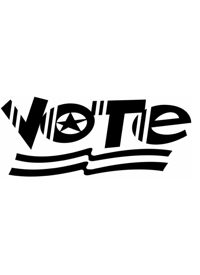
On July 24, 2009 Senator Russell Feingold (D-Wisc.) and Representative John Conyers (D-Mich.) introduced the Democracy Restoration Act (DRA). This legislation proposes that the nearly four million “disenfranchised Americans who have been released from prison and are living in the community” have their right to vote restored to them.
According to the writers, 35 states maintain laws that bar released felons from voting, but at a closer glance, it seems that only 12 states actually do so: Kentucky, Virginia, Alabama, Arizona, Delaware, Florida, Mississippi, Nevada, Tennessee, and Wyoming. Those states vary drastically in the way they handle voting privileges for prisoners and ex-felons. Virginia and Kentucky permanently withhold this privilege from all convicted criminals unless they’ve received individual governmental clearance. The others permanently ban criminals convicted of particular crimes, but not all.
Most other states restore voting privileges to criminals either immediately upon release, or after completion of sentence, including prison, parole, and/or probation. Only Maine and Vermont make no voting prohibitions on prisoners or ex-felons.
Not surprisingly, American criminal disenfranchisement statutes can be traced back to ancient Roman laws that imposed “civil death” on criminals. Once convicted, criminals were stripped of their rights, including the right to own property and vote. This practice was transferred to America by the English settlers.
In Richardson v. Ramirez, the Supreme Court upheld the constitutionality of the disenfranchisement statues, based on Section 2 of the 14th Amendment that reads:
But when the right to vote at any election for the choice of electors for President and Vice President of the United States Representatives in Congress, the Executive and Judicial officers of a State, or the members of the Legislature thereof, is denied to any of the male inhabitants of such State, being twenty-one years of age, and citizens of the United States, or in any way abridged, except for participation in rebellion, or other crime, the basis of representation therein shall be reduced in the proportion which the number of such male citizens shall bear to the whole number of male citizens twenty-one years of age in such State.
On March 16, 2010, a hearing was held on the DRA. Defenders of the DRA were comprised of the House Judiciary Committee, Constitution, Civil Rights, and Civil Liberties Subcommittees. At the hearing, Professor Burt Neuborne, legal director of the Brennan Center, argued that the Supreme Court “misread the text of section 2 of the Fourteenth Amendment to insulate felony disenfranchisement laws from strict scrutiny under section 1 of the Fourteenth Amendment.” Neuborne claims that the Court “erroneously read” the phrase “rebellion or other crime” to constitutionally support the disenfranchisement of criminals.
Neuborne and several others who testified in favor of the DRA argue that the language of Section 2 was intended to ban voting of those guilty of rebellion or crimes during the Civil War. Likewise, Neuborne claims that most disenfranchisement laws were intended to bar racial minorities from voting and are therefore unconstitutional under Hunter v. Underwood, but that it is difficult to prove “discriminatory intent.”
The focus of the DRA is federal elections, not state elections. The bill proposes to ensure that being on probation will not exclude someone from voting in federal elections, and that notification will be sent to those leaving prison informing them of their right to vote in federal elections.
Given the proximity of this hearing to the passage of the healthcare bill, one must wonder if this is a ploy of the Democratic Party, fearful of the backlash against their healthcare vote, to gain more votes in upcoming elections.




